The Oil Drum - At ASPO-USA Sacramento
Posted by Gail the Actuary on October 5, 2008 - 10:44am
Before we leave the topic of the ASPO-USA Conference in Sacramento, I wanted to make sure a few things didn't get missed. The big one was that The Oil Drum was one of the recipients of the M. King Hubbert Award, for Excellence in Energy Education. The other recipient of the Hubbert award was Global Public Media.
In this post, I include Dr. Kyle Saunders' (Prof. Goose's) acceptance speech. I also show photos of TOD participants and give brief summaries and links to the presentations TOD folks gave.
This is Kyle's acceptance speech:
This is quite an honor.
First, a round of applause to you Steve and the many folks at ASPO who have worked so hard to make this wonderful event happen.
We accept the M. King Hubbert Award for our contributors, our readers, and the peak oil community who continue to engage in the ongoing battle for the attention of the American, and world, public.
We accept this award for the peak oil community writ large, on behalf of ASPO-USA, Energy Bulletin, Global Public Media, peakoil.com, and the many other leaders of this movement who are with us at this esteemed meeting, all fighting the good fight in different ways, all thinking hard about the complicated uncertainties we will have to face in our energy future.
When we started The Oil Drum over three years ago, David Summers, the venerable Heading Out on TOD, and I wanted to learn more about that energy future. We had no idea on what kind of an adventure our research and learning would take us.
That journey has led us to explore myriad interrelationships between so many different topics and disciplines that the energy topic touches, it just boggles the mind when you take a step back; the journey and the problems we face continue to humble us to a point beyond anything we have ever encountered due to their daunting gravity and complexity.
The attitude we try to promote at TOD is clinical and empirical with a graceful amount of concern for humanity thrown in for flavor. It is academic, it is educated, it is critical. And it is certainly not for everyone.
We chose as our mode of discussion a website--though web-based, public, empirically-driven discussions and substantive, logical comments, and while not perfect--and not easy without the commitment of many good people--it has rewarded many with insight and the comfort of community while dealing with a topic that gives many fear, uncertainty, and doubt.
In that spirit, our mission remains simple: educate, educate, educate. We wanted to create a space that would help educate people about the many complicated narratives of energy, even as we learned some of them ourselves, with the idea that the more informed and diverse dialogues we could have about those problems--as well as the many proposed solutions to those problems, the better off we would be as a society.
Every single person we educate about our energy situation is another person who has the choice to a) learn more, b) prepare according to their own perceptions, and c) educate others.
Through that educational mission, we continue to search for and find courageous people to confront and discuss hard issues, do our best to raise the perpetually low level of national discourse, and promote action now, rather than when our normal steep-discount-rated lives would normally react. As Bob Hirsch has pointed out, and as the "black swan" unfolding on Wall Street is evidence of, time is a commodity we are also short of.
We have had the opportunity to work with some of the brightest, most wonderful people I have ever had the opportunity of meeting, and I would like to introduce them to you, please stand as I call you--I would ask that you please hold your applause until the end. David Summers, our co-founder, who I already introduced, Gail Tverberg, you know her as Gail the Actuary, has also stepped into a greater role in the site of late in addition to her strong analyses. Robert Rapier, with his incisive insights into ethanol, biofuels, and energy writ large, Jeff Vail with his educational discourses on the complex geopolitical lay of the land, Brian Maschhoff, his google-earth analyses of Saudi Arabia are quite wonderful, and our most recent addition Chuck Watson, whose models of hurricane damage have informed so many of late.
In addition, there are many others who could not be here, who play important roles in what we do, and they also deserve much laud. I hope you will give all of them a round of applause and appreciation.
To close, we think King Hubbert would know what we mean when we say that we accept this award in the spirit of research, in the spirit of education, in the spirit of community, and the spirit of brotherhood, all of which can give us courage to face the many uncertainties of our energy future. Thank you.
Most of the talks we gave were on Sunday afternoon. The 1:30 pm session was moderated by Heading Out. The talks were as follows:
 Gail Tverberg, also known as Gail the Actuary, gave a talk entitled Peak Oil and the Economy. In my talk, I said that while we can start with a worldwide model of the expected impact of peak oil on GDP, this is not the whole story. Different countries are in different positions (US vs. Saudi Arabia vs China). Also, the current debt situation is likely to affect the outcome. I gave several implications, including that we may see a debt implosion and a falling standard of living.
Gail Tverberg, also known as Gail the Actuary, gave a talk entitled Peak Oil and the Economy. In my talk, I said that while we can start with a worldwide model of the expected impact of peak oil on GDP, this is not the whole story. Different countries are in different positions (US vs. Saudi Arabia vs China). Also, the current debt situation is likely to affect the outcome. I gave several implications, including that we may see a debt implosion and a falling standard of living.
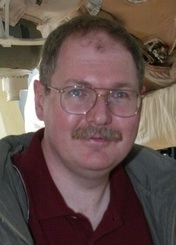 Chuck Watson gave a talk entitled Forecasting Natural Hazard Risks to Oil and Gas Infrasturcture. He talked about the modeling techniques he uses. He also mentioned that the National Hurricane Center never wants to be too low in its forecasts, because it is concerned that people may not evacuate if they fell the risk is not great enough. His forecasts tend to be more realistic. He mentioned that there is strong evidence that climate is changing. He believes we are already past the tipping point, and the likely outcome is global cooling.
Chuck Watson gave a talk entitled Forecasting Natural Hazard Risks to Oil and Gas Infrasturcture. He talked about the modeling techniques he uses. He also mentioned that the National Hurricane Center never wants to be too low in its forecasts, because it is concerned that people may not evacuate if they fell the risk is not great enough. His forecasts tend to be more realistic. He mentioned that there is strong evidence that climate is changing. He believes we are already past the tipping point, and the likely outcome is global cooling.
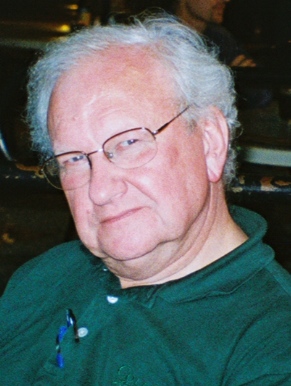 Dr. David Summers, also known as Heading Out, gave a talk entitled The Other Resource Lack: Time and Technology. He mentioned that historical oil depletion rates of about 4% a year were based on vertical wells and the proportion of oil contact that was lost each year as the water level rose. With horizontal wells, there is no reason to expect the depletion rate will be similar. Horizontal wells are placed so as to minimize water contact until it gets to the very top. When the water does meet the horizontal well, production drops very quickly. Thus, he feels that depletion rates can be expected to increase significantly, when water levels start reaching some of the horizontal wells.
Dr. David Summers, also known as Heading Out, gave a talk entitled The Other Resource Lack: Time and Technology. He mentioned that historical oil depletion rates of about 4% a year were based on vertical wells and the proportion of oil contact that was lost each year as the water level rose. With horizontal wells, there is no reason to expect the depletion rate will be similar. Horizontal wells are placed so as to minimize water contact until it gets to the very top. When the water does meet the horizontal well, production drops very quickly. Thus, he feels that depletion rates can be expected to increase significantly, when water levels start reaching some of the horizontal wells.
 The 3:30pm session was moderated by Dr. Kyle Saunders, also known as Prof. Goose. Kyle didn't give a talk himself, but participated in answering audience questions.
The 3:30pm session was moderated by Dr. Kyle Saunders, also known as Prof. Goose. Kyle didn't give a talk himself, but participated in answering audience questions.
There were three talks at 3:30pm:
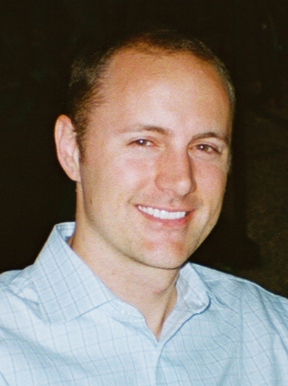 Jeff Vail gave a talk entitled The Geopolitics of Energy: A System's Thinking Approach in 10 Slides. Jeff talked about some of the issues he has already talked about on TOD, as well as some issues we are likely to hear more about in the future. He included such items as "Market Driven Conservation and Efficiency Increase Inelasticity" and "'Solving Symptoms' leads to alternative negative outcomes". This is the whack-a-mole problem.
Jeff Vail gave a talk entitled The Geopolitics of Energy: A System's Thinking Approach in 10 Slides. Jeff talked about some of the issues he has already talked about on TOD, as well as some issues we are likely to hear more about in the future. He included such items as "Market Driven Conservation and Efficiency Increase Inelasticity" and "'Solving Symptoms' leads to alternative negative outcomes". This is the whack-a-mole problem.
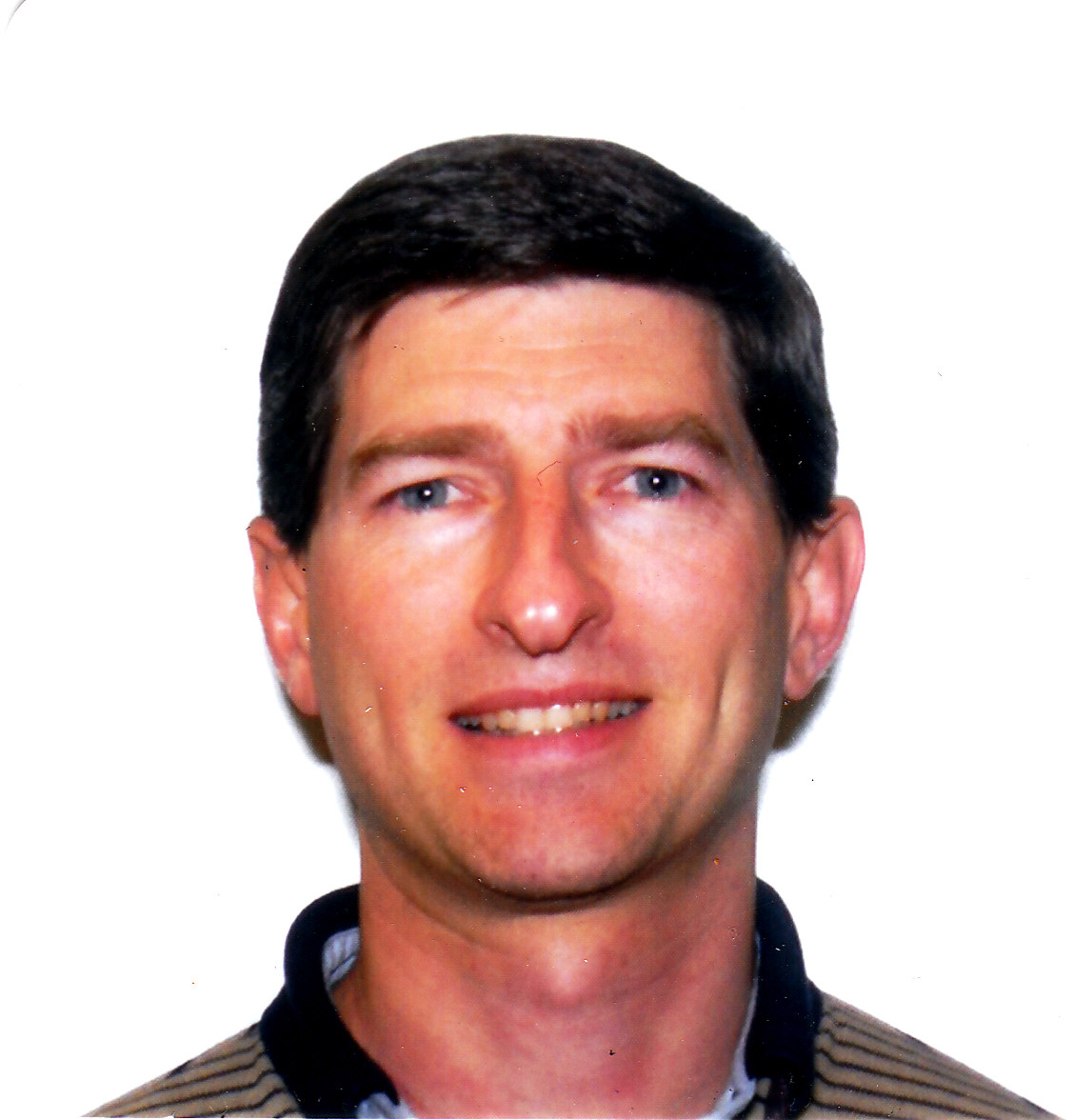 Robert Rapier gave a talk entitled The Energy Information Providers: EIA, IEA, and CERA. In it, he talked about the strengths and weaknesses of the information provided by each of these organizations. For each of these organizations, the big weakness has been in the area of forecasts of future supply. One concern is that governments and businesses make decisions using these poor forecasts.
Robert Rapier gave a talk entitled The Energy Information Providers: EIA, IEA, and CERA. In it, he talked about the strengths and weaknesses of the information provided by each of these organizations. For each of these organizations, the big weakness has been in the area of forecasts of future supply. One concern is that governments and businesses make decisions using these poor forecasts.
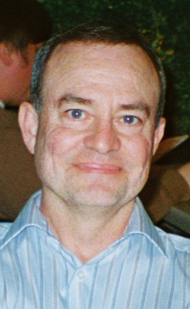 Brian Maschhoff, known on TOD as "Joules Burn", gave a talk entitled Saudi Aramco and the Art of Oil Field Maintenance. He talked about the fact that we hear a lot about what Saudi Arabia is doing with respect to developing new sources of production, but we hear virtually nothing about what they are doing to keep exiting fields, like Ghawar, producing. He showed Google Images indicating that Saudi Arabia is running out of new places to add infill wells in some locations, such as North Ghawar. This will eventually mean a decline in production.
Brian Maschhoff, known on TOD as "Joules Burn", gave a talk entitled Saudi Aramco and the Art of Oil Field Maintenance. He talked about the fact that we hear a lot about what Saudi Arabia is doing with respect to developing new sources of production, but we hear virtually nothing about what they are doing to keep exiting fields, like Ghawar, producing. He showed Google Images indicating that Saudi Arabia is running out of new places to add infill wells in some locations, such as North Ghawar. This will eventually mean a decline in production.
The only one of us from TOD to give a talk at the plenary session was Robert Rapier. (Nate Hagens was scheduled to give a talk as well, but was unable to come because of health issues.) Robert's talk was entitled Biofuels: Facts and Fallacies.
Robert talked about many of the biofuel issues that he has mentioned on TOD. He talked about where politicians fail (misleading the public; changing energy policy every year; and picking winners) and why they fail (lack of knowledge; fear of being voted out of office; and conviction that they are right). My favorite slide in Robert's presentation was the one which showed what kind of bridge fuel corn ethanol is.
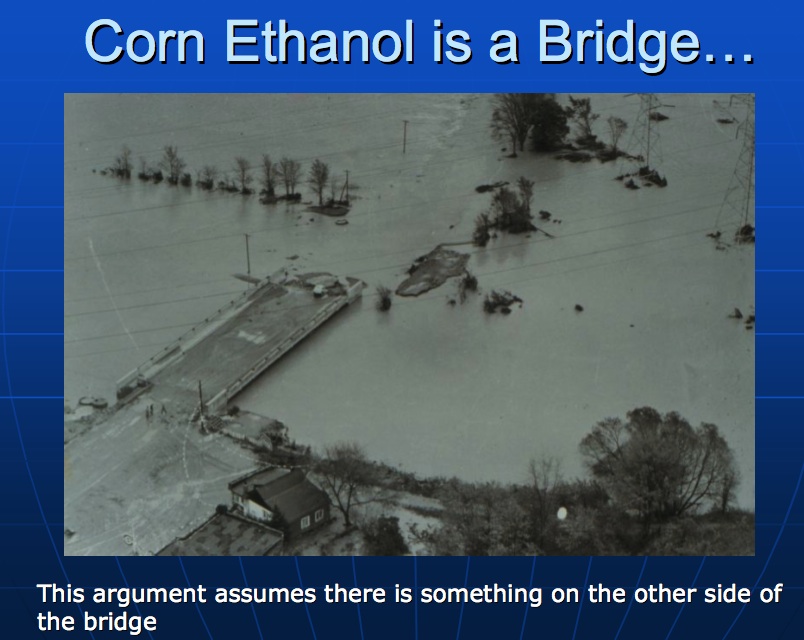




Thanks to every one for the hard work and time you put in.
You are welcome. I think we all enjoy working on this.
Big Kudos to ASPO, TOD, EB, plus other websites, authors of Peak related books, and to all the community orgs pushing Peak Outreach as best they can.
Congrats to Prof. Goose (et al)!
Thanks to all at TOD. You have helped me make my life choices in a most positive way. My family and I have never been closer or more content (except when I am on a rant).
Special thanks to Gail for your well thought out perspective and generous efforts wrt responses to comments.
I nominate Leanan for the Moderator of the year award. Seriously of all the forums I have ever been to she Kicks it in too many way to even list. Hip Hip Hooray!
CHEERS!
Kudos to the oildrum staff & a huge thank you.
i barely knew how to type or use the net when i learned of & got scared about peak oil 5/05. soon thereafter i discovered the oildrum & it has been my mainstay for info since. Thanks again!
King Hubbert would be giving a thumbs up!!!
You folks can't know how important the constant flow of information you provide is to the energy non-experts! Please accept my profound thanks.
Yes, thanks for running a great forum where people can exchange views, ideas, info. in a most useful way.
--Truly grateful!
As a true layperson in the area of energy and peak oil, I am now seen as a "lay-expert" (oxymoron for sure!)by my friends and family. TOD's appeal to the many different people that grace this site is a testament to the many ways you have made this site so inclusive and informative.
Thank you
Nic
We appreciate everyone's kind thoughts!
Ditto to the above sentiments. Never a dull moment. Cheers!
Tom
I echo all above. Many thanks to TOD and those who run it. I have learn't much, I have used articles as references in my Masters degree; and I have been humbled by the intellect and insight here. I have felt included as part of the TOD community. Thank you for all that!
Actually, I'm just amazed at how much I've learned about oil production, depletion, reserves, and other technical information that I'd NEVER be able to understand without the great writing that goes on here on a daily basis, and much much more. I discovered Peak Oil before finding TOD, but my understanding has been immeasurably enriched. You guys deserve every accolade available.
Long-time lurker, first-time poster -
I've been reading and studying the information and dialogues on The Oil Drum for about two and a half years. While there are many sites with excellent peak information out there, the openess and feeling of community that exists here is hard to beat.
Congratulations on receiving recognition richly deserved for what, in my mind, is the best site for peak-related data anywhere.
Keep up the great work and Peace to all.
Barry in Spokane
Thanks to all! You have helped me remain sane on the journey (and helped me prove to others that I'm not crazy!) :)
Love you guys,
Autodidact
And more thanks here, for all of your efforts and contributions.
Congratulations to TOD! well deserved recognition.
From the comments on the Chuck Watson presentation:
"He mentioned that there is strong evidence that climate is changing. He believes we are already past the tipping point, and the likely outcome is global cooling."
Is he really predicting global cooling? Could you perhaps elaborate on this?
Peter.
I would like to hear more about this also.
I have heard about this more than once before. One of the other TOD contributors has researched the issue, and is leaning toward the global cooling conclusion. Also, one talk I heard by a meteorologist early this year made a fairly good case (from a layman's perspective) that the melting of the area around the North pole would change snow patterns and kick us into the next ice age. There were various interactions which I don't remember, but one of them was that having more reflective snow (as the winds moved over the open North Pole area and made "lake effect snow") would reflect heat back, and kick us into the next ice age.
You may have read the post that gave Charlie Hall's comments on the huge International Geology Congress in Norway. He reported that about two-thirds of those present disagreed with the IPCC report.
The cooling outcome seems unlikely to me, on first principles. It's usually based on the idea that the ocean thermohaline circulation fails in the N. Atlantic, due to freshening water from ice melt. Heat flux from the tropics would be diminished, causing at least a local cooling in N. America and N. Europe.
This argument doesn't take into account the global heat budget; more greenhouse gases mean more absorption and re-emission of outgoing longwave radiation (infra-red) from earth's surface. To reach equilibrium with the sun's incoming shortwave radiation, the atmosphere must warm. Local and short-term fluctuations (even local coolings) certainly will occur on the way to the equilibrium state, and reorganzation of the thermohaline circulation will probably result, but the outcome will not be another ice age.
Using paleoclimate as a guide to what might happen at the CO2 concentrations we're heading toward, we can expect widespread ocean stratification and anoxia, large-scale deglaciation, desertification, and mass extinctions.
> "I could not at first figure out why there was so much hostility between the two climate groups."
There is a large and very well funded global warming denial industry, featuring in many cases the same individuals and organizations that were involved with tobacco.
Recommendation - watch the Naomi Oreskes video on The American Denial of Global Warming, or google for her and "how do we know we're not wrong?", or read her paper on consensus here -
http://www.sciencemag.org/cgi/content/full/306/5702/1686
or read the list of scientific bodies (virtually *every* major one) making statements on climate, at http://logicalscience.com/consensus/consensus.htm
.
For the sake of our kids, we can't afford to be hoodwinked this time.
"The climate system is an angry beast, and we are poking it with sticks."